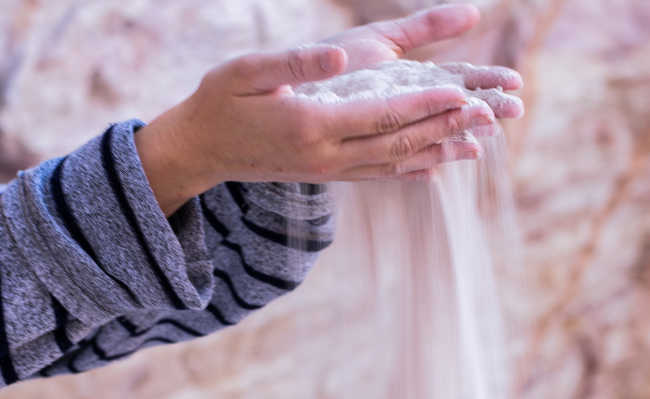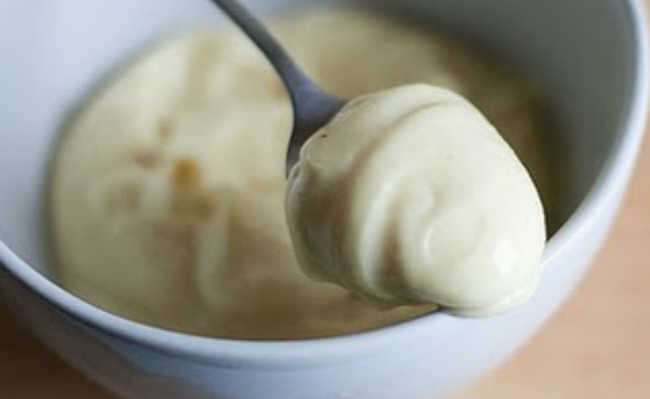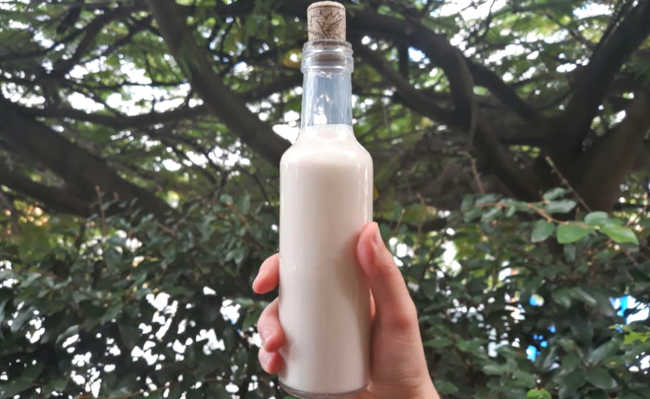Vetiver essential oil: benefits and what it is for
Vetiver essential oil improves attention, ward off ticks, is rich in antioxidants, among other benefits

Edited and resized image of Anshu A, is available on Unsplash
Vetiver essential oil, also called khus essential oil, is extracted from a grass plant native to India, which can grow to a meter or more in height. The vetiver plant belongs to the same family as other grasses used to make essential oils, including lemongrass and citronella.
- Capim-santo: learn about benefits and medicinal properties
- Citronella hydrolate has repellent and therapeutic properties
Vetiver essential oil is very fragrant, with an earthy aroma that recalls the notes of men's perfumes. It is distilled from the roots of the vetiver plant, which is aged before being soaked in water. The highly concentrated essential oil is released and then begins to float in the water's surface layer. In mystical practices it is used for its calming "grounding" properties.
Uses and Benefits of Vetiver Essential Oil
Vetiver essential oil has some properties that make it a promising ingredient for aromatherapy.- What is aromatherapy and what are its benefits?
Vetiver essential oil for mental fatigue
In one study, researchers found that inhaling the essential oil of vetiver improved attention and brain function. Vetiver essential oil can help your brain feel more awake if you're struggling to focus on a task or stay alert to what's going on around you.
Vetiver essential oil to inhale during sleep
Using vetiver essential oil in a diffuser during sleep can help improve your breathing patterns. A small 2010 study measured the response of 36 people who were exposed to different scents during sleep.
Vetiver essential oil increased the quality of expiration and decreased inspiration when study participants who slept inhaled it. This could mean that vetiver essential oil can help people who snore heavily.
Vetiver essential oil for anxiety
Vetiver essential oil can help relieve anxiety, according to a study.
- 18 types of essential oil for anxiety
Keeps ticks away
In one study, vetiver essential oil showed high toxicity to ticks. When diluted with a carrier oil and applied topically, it may even be more effective than some marketed products at protecting against tick bites that can cause Lyme disease.
Vetiver essential oil for ADHD
Interestingly, some people use vetiver essential oil aromatherapy as a treatment for ADHD attention deficit hyperactivity disorder. A 2016 study showed that vetiver essential oil can decrease mental fatigue and improve attention span, so it makes sense that it might work for people with ADHD to focus on a task and sift through other sensory information.
But more research is needed to prove that vetiver essential oil is really effective in treating ADHD. Meanwhile, there are other essential oils with demonstrated benefits for ADHD.
Contains antioxidants
A 2009 study showed that vetiver root has antioxidant properties. Antioxidants help the body eliminate so-called "free radicals" that contribute to the development of chronic diseases such as cancer and the signs of aging.
How To Use Vetiver Essential Oil
Vetiver essential oil is effective in aromatherapy. This means it is safe to inhale when distilled and released as a vapor. Using a diffuser to inhale the scent of pure vetiver essential oil is one way to use it for health benefits.
You can also try applying vetiver essential oil topically. But it should always be diluted in a carrier oil such as coconut oil, grape seed oil, almond oil, sesame oil, jojoba oil, among others). Mix one to two drops of vetiver essential oil into every ten drops of carrier oil to begin using it on your skin. If desired, you can gradually increase the amount of vetiver essential oil in your mix.
Is vetiver essential oil safe?
Vetiver is safe in most applications as long as it is used sparingly. Seek medical advice if you are pregnant or nursing and considering using vetiver essential oil.
According to a study, the essential oil of vetiver is very low toxic. As long as you are not allergic to the vetiver plant, it is safe to apply it topically to the skin. Always dilute essential oils with a carrier oil and perform an allergy test on a small part of the skin before applying them all over the body.
Inhaling vetiver essential oil through an aromatherapy diffuser is also safe for most people. Always be careful when using aromatherapy on your child. Never use aromatherapy or topical oil applications on children under two years of age without medical advice about possible side effects.
Aromatherapy also affects pets. Avoid using the diffuser in the same environment that the animal frequents.
Text originally written by Kathryn Watson for Healthline, medically revised by Debra Rose Wilson and adapted to Portuguese by Stella Legnaioli










